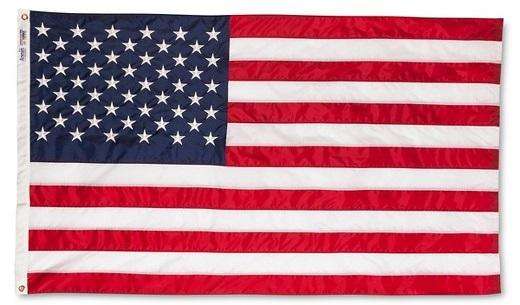The Legality Of Burning The American Flag
In the United States, burning the American flag is not illegal due to a 1989 Supreme Court ruling (Texas v. Johnson) that deemed it a form of protected symbolic speech under the First Amendment. However, local ordinances regarding fire hazards and laws against theft or trespassing apply. Additionally, inciting violence through flag burning is not protected speech. While legal, flag burning remains controversial and is viewed by many as disrespectful. It's crucial to recognize the balance between free speech and respect for national symbols. People have differing perspectives on this emotional issue.
The Controversy Surrounding Flag Burning
Flag burning, which means setting the flag on fire, has been happening for a long time. Some people think it's a strong way to show they don't agree with something and to get attention for problems. But others don't like it. They think it's rude and disrespectful. They say it takes away from the bravery of people who fought in wars and what the flag stands for. People argue a lot about this. They have strong feelings on both sides.
Historical Context Of Flag Burning Laws
Flag-burning laws have been argued about for a long time in the USA. Way back in the old days, like the 1800s, some states made rules saying you couldn't mess with the flag. They thought it was like being mean to God or being a traitor. But hardly anyone got in trouble for breaking these rules. Then, things stayed quiet about flag burning until the 1900s came along.
Legal Perspective: The Supreme Court Rulings
In 1989, the big bosses at the Supreme Court talked about burning flags. They said it's okay to burn the American flag to show you're mad. This was in a case called Texas v. Johnson. Before, 48 states had rules against messing with the flag. But the Supreme Court said those rules were no good. They said these rules hurt people's rights from the First Amendment, which says you can say what you want.
Arguments For And Against Flag Burning
People can't agree on whether it's okay to burn flags. Some folks say it's a way to speak out without talking. They think it's covered by a rule called the First Amendment, which lets people say what they want. Others don't like it. They say burning a flag is disrespectful and not showing love for your country. They think it should be against the law to keep important symbols safe.
Impact Of Flag Burning On Society
Flag burning can shake things up in society. It makes people feel a lot of different things and starts big arguments about what it means to love your country and to speak your mind freely. Some folks think burning the flag is a fair way to show they're not happy about something. But others think it's just plain rude and shows no respect for the people who gave everything for the country. It's like a big tug-of-war between different ideas of what's right and wrong. Everyone's got strong feelings about it, and it's hard to find common ground.
International Perspective On Flag Desecration Laws
In many other countries, like America, people also talk about flag rules. Some places have strict laws about messing with their flags. But every country does things a bit differently. They might see what's okay with the flag differently. Some countries are very strict about it, while others are not as much. It all depends on what's important to them and what they believe. So, when it comes to flags, each place has its own ideas. And that's why you might see different rules around the world.
Current Status Of Flag Burning Laws In The United States
Flag-burning laws in the United States are still causing arguments, even after the Supreme Court talked about it in Texas v. Johnson. The big boss laws don't say you can't mess with the flag, but some states made their own rules. These rules punish people for burning the flag. But lots of times, courts say these rules are against the main rules, the ones in the big book called the Constitution.
Challenges to Flag Burning Laws
Flag-burning laws face several challenges. First, it's tough to decide what counts as "desecration" of the flag. This means figuring out when someone is disrespecting it. Then, there's the question of what punishment fits the crime. It's not easy to find the right balance. Another problem is making sure these laws are followed. It's like walking on a tightrope, trying to respect people's freedom to speak while also keeping the flag safe. This can be tricky for the government.
Cultural Implications Of Flag Desecration
Flag desecration, messing with the flag, is a big deal because it shows what people think about their country and who they are. Some folks think the flag is super important and shows what the country believes in. Others think it's not cool because it represents bad stuff like unfairness and being mean. People argue a lot about what should happen if someone messes with the flag. It's not just about the flag itself, but what it means for the country and its people.
Alternatives To Flag Burning As A Form Of Protest
Flag burning, like when people set flags on fire, can make a strong statement. But there are other ways to show you don't agree with something. You can join peaceful marches or rallies. That means walking with others who feel the same way you do. You can also get involved in politics. That means doing things to try and change laws or rules. Or you can speak up for new policies. These are like new rules that could make things better.

Public Opinion On Flag Burning
Public opinion on flag burning is divided, with polls showing mixed attitudes towards the practice. While some Americans view flag burning as protected speech, others see it as deeply offensive and disrespectful. The issue remains highly contentious, reflecting broader divisions within society.
Legislative Attempts To Ban Flag Desecration
Many times, people tried to make laws stopping flag burning. They wanted to change the Constitution or make new national rules. But every time they tried, they didn't succeed. The top judges in the country said burning the flag is okay. They said it's protected by the First Amendment.
Enforcement And Punishment For Flag Burning Offenses
When people break laws about burning flags, they can get punished. This might mean paying money, going to jail, or facing other consequences. But usually, not many people get in trouble for it. Courts don't like to punish people for doing things that their rights let them do. So, even though there are rules, they don't always get enforced. It's like having rules for a game, but not everyone follows them, and sometimes nobody cares if they do. So, while there are consequences for burning flags, they don't always happen.
Case Studies Of Notable Flag-Burning Incidents
In the past, some big moments happened when people burned flags. These moments made people talk about whether burning flags is okay or not. Sometimes, it was during protests when people were mad about politics. Other times, it was when people wanted to show they didn't agree with the rules. These times made us think about burning flags in different ways. It's not just one simple thing; it's complicated. And sometimes, it's hard to agree on what's right or wrong about it.
The Ongoing Debate And The Importance Of Protecting Free Expression
Is it okay to burn the American flag? This is a big question that many people argue about. It's not just about the flag; it's also about how we show love for our country, saying what we think, and how much the government should control what we say and do. Some folks find burning the flag rude, but it's allowed by the First Amendment. This means that even though some folks might not like it, people have the right to do it as a way of expressing their ideas. This ongoing argument shows how crucial it is to let people speak their minds, even when we don't agree with them.



